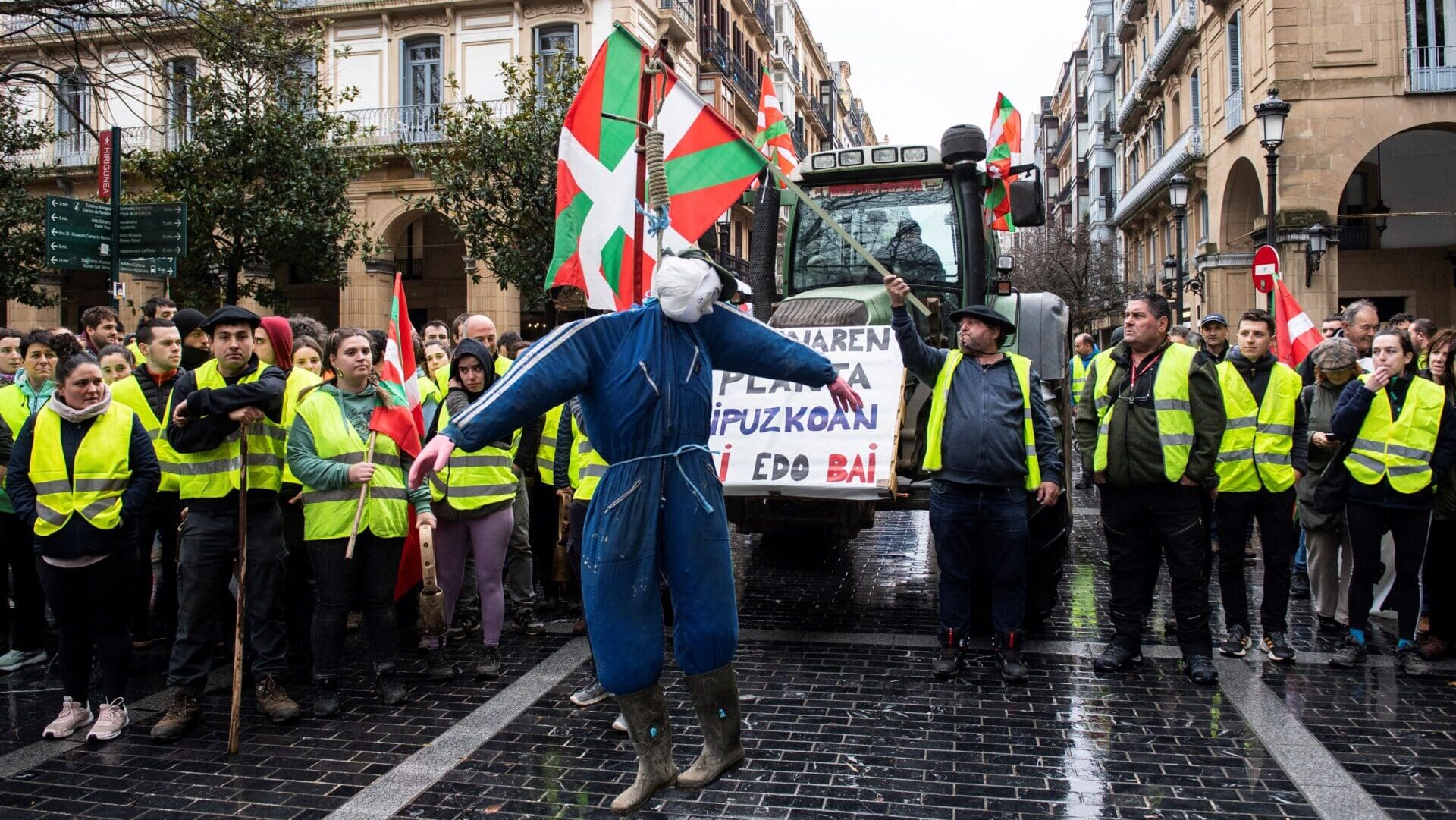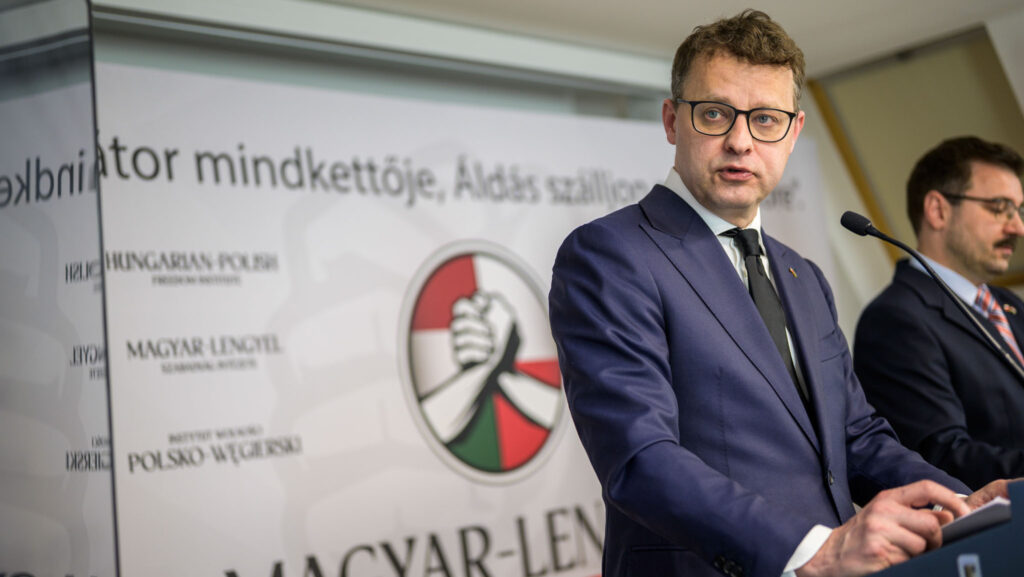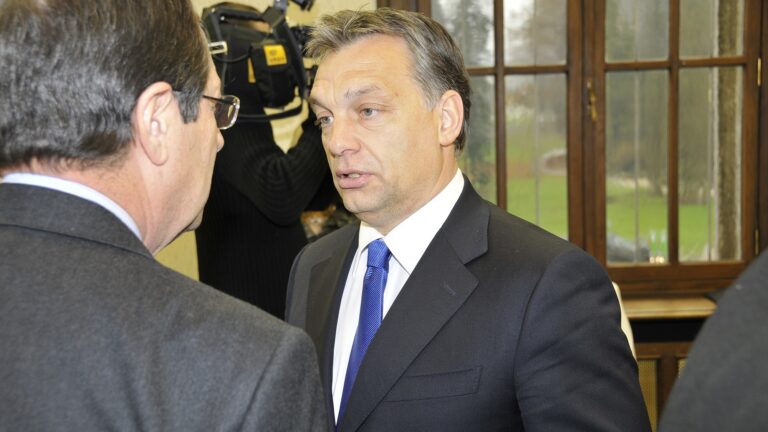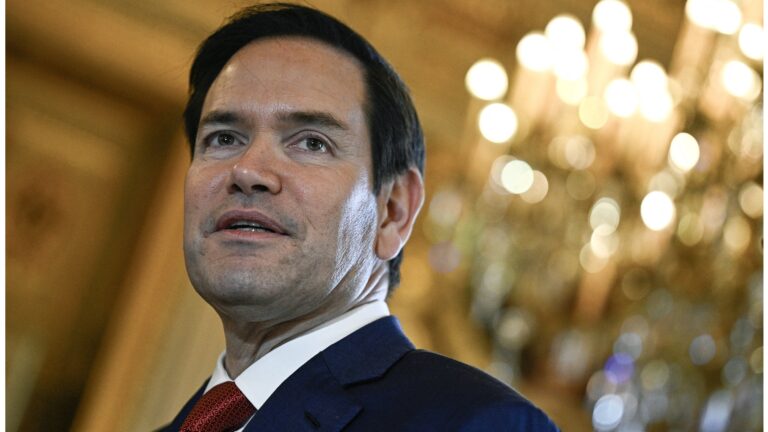The Chambers of Agriculture of six countries, including the Hungarian National Chamber of Agriculture (NAK), are protesting against the European Union’s agricultural policy, as reported by NAK to MTI on Tuesday following an expanded meeting of the Chambers of Agriculture of the Visegrád Group (V4). According to the statement, they urge decision-makers in Brussels not to undermine European agriculture and to stop rendering European farmers unviable. Additionally, to demand the halting of the influx of imports from Ukraine, the V4 Chambers of Agriculture are planning a joint demonstration on 22 February at the Slovak–Polish–Czech border.
NAK highlighted the challenges EU farmers are encountering due to escalating production costs and the uncertainty stemming from the conflict in Ukraine. They emphasized their anticipation of support from EU institutions rather than further hardship. Additionally, they expressed their concern that the European Commission’s efforts to facilitate the trade and export of Ukrainian goods could adversely affect specific sectors and agricultural markets within the EU. The communication stressed the necessity for mechanisms to effectively safeguard the markets of EU member states, particularly those of the frontline countries.
They restated that farmers across Europe, who are consistently staging protests, are seeking tangible and feasible solutions from Brussels for the agricultural sector. Protesting farmers are underscoring the challenges posed by climate change, farm competitiveness, income stability, administrative burdens, and generational succession.
Brussels’ Insufficient Concessions
The V4 farmers’ demonstration represents another episode in a series of farmers’ protests sweeping across Europe since the beginning of the New Year. The protests initially erupted in Germany and subsequently spread to France, Romania, Poland, Greece, Spain, Belgium, and beyond. Broadly speaking, farmers are rallying against the measures implemented by the EU’s Common Agricultural Policy (CAP),
which impose nearly unmeetable conditions on EU farmers in the name of sustainability and the fight against climate change.
This discontent is further exacerbated by trade agreements with third countries and organizations that disadvantage European farmers, with the situation surrounding the import of Ukrainian grain serving as a prominent example. A symbolic display of dissatisfaction occurred on 11 February, when enraged Polish farmers spilled imported Ukrainian grain near the Yahodyn–Dorohusk border crossing.
Brussels has made several concessions to reassure farmers, as have national governments. The European Commission, while drafting the EU climate targets which were presented to member states for discussion, omitted the section related to agriculture that originally called for a 30 percent reduction in emissions from the sector compared to 2015. Furthermore, recommendations for citizens to adjust their behaviour, such as reducing meat consumption, and initiatives to phase out fossil fuel subsidies have been removed.
The Commission is also retracting the Sustainable Use of Pesticides Regulation (SUR), which aimed to halve pesticide use by 2030. This regulation also included a provision for a complete ban on these products in sensitive areas such as urban green spaces and Natura 2000 sites. ‘The Commission proposed SUR, with the worthy aim to reduce the risks of chemical plant protection products,’ von der Leyen told MEPs at the European Parliament in Strasbourg on 6 February. ‘But the SUR proposal has become a symbol of polarisation.’
However, it appears that the EU’s responses to these issues are few and far between, as farmers have been protesting for over two months now. Most recently, the blockade of the port of Antwerp—Europe’s second-largest port—has caused significant logistical disruptions to goods transport and trade. Essentially, the ongoing farmers’ protests, along with accompanying rail and transport strikes, have inflicted substantial damage on the European economy amounting to millions of euros, with no resolution in sight.
The farmers’ grievances are justified.
For years, European politicians, primarily on the left, have disregarded their demands and imposed stringent regulations on the sector without considering the interests of farmers. Hungarian Prime Minister Viktor Orbán visited the Belgian protesters ahead of the European Council summit on 1 February. Addressing journalists, PM Orbán stated that to address the problem, the entire leadership in Brussels must be replaced, as the current elite is unlikely to make decisions favourable to farmers.
Decisive Elections Ahead
However, the forthcoming European Parliament elections could usher in change, as evidenced by the EP debate on the EU’s climate target to reduce greenhouse gas emissions by 90 percent by 2040 compared to 1990 levels. The right-wing political group Identity and Democracy (ID) is advocating for nothing short of the total abolishment and reassessment of the EU’s Green Deal. ‘The goal is to signal that instead of expanding the Green Deal with even more regulations as proposed, [it] should be renegotiated to abolish the framework as it stands now,’ Belgian MEP Tom Vandendriessche told Euractiv France.
The European Conservatives and Reformists (ECR) have highlighted the social implications of the climate target, emphasizing that it is fundamentally disconnected from reality. ‘Have you been transparent about your plans, about how their [farmers' and people's] lives would be affected if you proceeded with this plan?’ Czech MEP Alexandr Vondra posed this question to his left-wing colleagues, questioning whether farmers and the public have been informed that energy, transportation, housing, meat, and other essential food items will become more expensive.
The Greens, staunch advocates of the Green Deal and the climate target, persist in their call for emission reductions across all sectors and oppose preferential treatment for agriculture. However, their influence in the new European Parliament is projected to diminish, with expectations of 50 seats compared to their current 74. By contrast, ID is projected to secure 89 seats, while ECR is expected to win 77 seats, potentially positioning the former as the third largest political group in the European Parliament.
Related articles:








